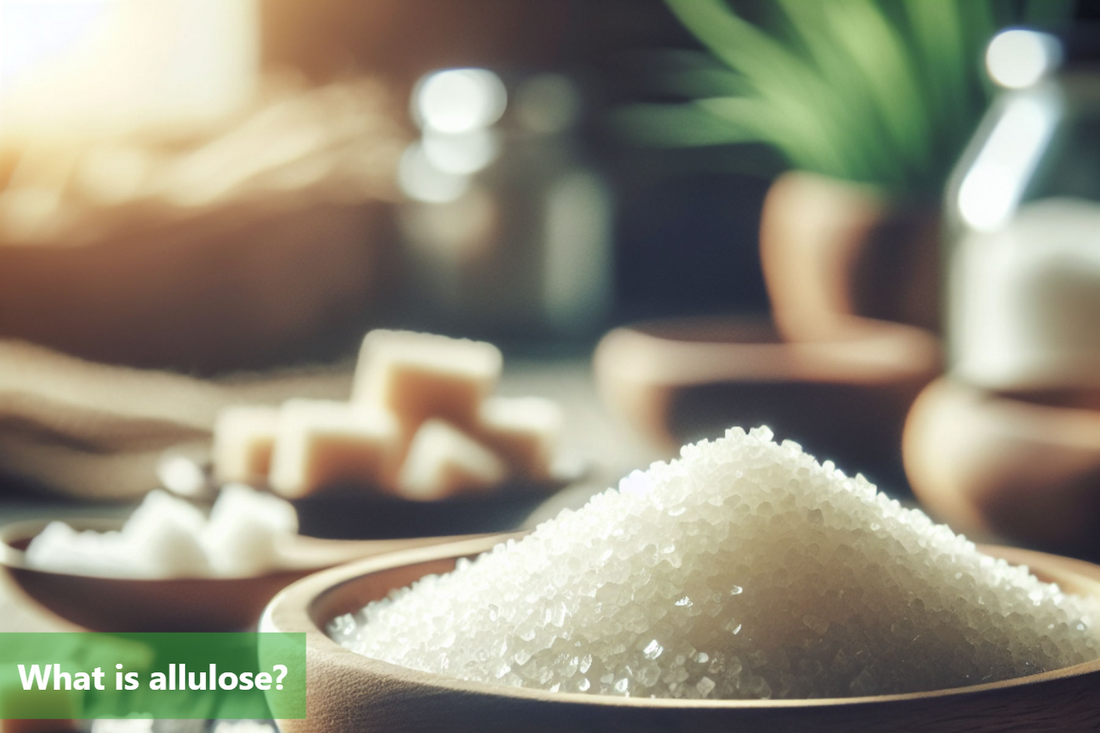Allulose, a rare sugar found in nature, is a low-calorie sweetener gaining popularity. It offers the sweetness of sugar without the high calorie count, making it ideal for those monitoring their calorie intake. Allulose is nearly calorie-free and has minimal impact on blood sugar levels as it differs from regular sugar in metabolism. Derived from fruits like figs and raisins, allulose provides a similar taste to sugar but with significantly fewer calories. This natural alternative promises a guilt-free sweet taste for health-conscious consumers.
Is Allulose Safe for Consumption?
Allulose, a natural sweetener, is safe for consumption. Derived from sources like wheat, figs, and raisins, allulose is a low-calorie sweetener that mimics sugar without raising blood glucose levels. It has minimal calories and is widely accepted as safe by the FDA. Research shows that moderate consumption is not harmful, even for individuals with diabetes. Excessive intake may cause mild gastrointestinal discomfort, so moderation is important. Allulose is a safe choice for those seeking a sweet treat without the calories.
The Source and Production of Allulose
Steps to Extract Allulose:
Source Selection: Allulose is naturally present in fruits such as jackfruit and figs. However, manufacturers typically extract it from corn through enzymatic conversion of fructose.
Enzymatic Isomerization: The first step involves enzymatic isomerization of fructose to obtain allulose. This process helps in transforming the fructose into allulose efficiently.
Separation Process: Following the enzymatic conversion, the next crucial step is the separation process. This step aims to ensure high purity of the extracted allulose by removing any impurities and unwanted components.
Final Product: Allulose, once extracted and purified, offers a sweet taste with only a fraction of the calories found in regular sugar. Its unique properties make it a desirable natural alternative for a wide variety of food products.
Potential Side Effects
Digestive Discomfort: Some individuals may experience bloating, gas, or diarrhea when consuming large amounts of allulose.
Increase in Blood Sugar Levels: Excessive intake of allulose could potentially lead to higher blood sugar levels, especially in individuals with diabetes.
It's important to consume allulose in moderation and monitor your body's response to this sweetener. Consulting with a healthcare professional can also help determine if allulose is suitable for your individual dietary needs.
Who Should Consider Using Allulose?
Allulose can be a great option for individuals looking to reduce their sugar intake while still enjoying sweet treats. It's suitable for those on a low-carb or keto diet, individuals with diabetes looking to better manage their blood sugar levels, and anyone seeking a sugar substitute that tastes like real sugar without the calories.
Who Should Avoid Consuming Allulose?
If you have any existing allergies to allulose or experience digestive issues after consuming it, it is advisable to avoid this sweetener. Additionally, individuals with certain medical conditions may need to consult a healthcare professional before including allulose in their diet.
Bottom Line
Allulose, often hailed as a game-changer in the world of sweeteners, is gaining popularity for its unique characteristics and potential health benefits. This versatile sweetening agent, derived from natural sources such as fruits, stands out for its remarkable taste profile that closely resembles traditional sugars. What sets allulose apart is its low-calorie content and the fact that it does not cause a significant spike in blood sugar levels. This makes it an excellent choice for individuals looking to manage their blood sugar levels, including those with diabetes or following a low-carb diet.
Moreover, extensive research on allulose has shown promising results regarding its safety and tolerability. As a result, the food industry is increasingly turning to allulose as a viable solution for reducing sugar content in various products while maintaining a desirable level of sweetness. This shift towards incorporating allulose in food formulations not only offers a healthier alternative for consumers but also opens up new possibilities for innovative product development that caters to the growing demand for health-conscious options. With its impressive properties and potential health benefits, allulose is poised to revolutionize the way we perceive and consume sweeteners in the modern era.
FAQs:
What is allulose? Allulose is a low-calorie sugar that occurs naturally in small quantities in various fruits and is similar in taste and texture to regular sugar.
Is allulose a sugar substitute? Yes, allulose is considered a sugar substitute as it provides sweetness without the calories associated with traditional sugar.
How is allulose metabolized by the body? Allulose is not fully metabolized by the body, so it has a lower impact on blood sugar levels compared to regular sugar. It also passes through the body without being fully absorbed.
Can allulose be used in baking? Yes, allulose can be used in baking as a substitute for sugar in various recipes. It may require some adjustments in cooking times or temperatures.
Are there any side effects of consuming allulose? Allulose is generally considered safe when consumed in moderation. However, some people may experience digestive discomfort if consumed in large quantities.
This Blog post is an initiative by DiabeSmart, to provide accurate and Nutritionist / Doctor approved information related to Diabetes. DiabeSmart is India's first Food brand designed specifically for Diabetics, that has been clinically tested on Diabetics and Pre-Diabetics to deliver 55% - 70% lower Sugar spikes. DiabeSmart is part of Lo! Foods - India's leading brand for Everyday Functional Health foods.











